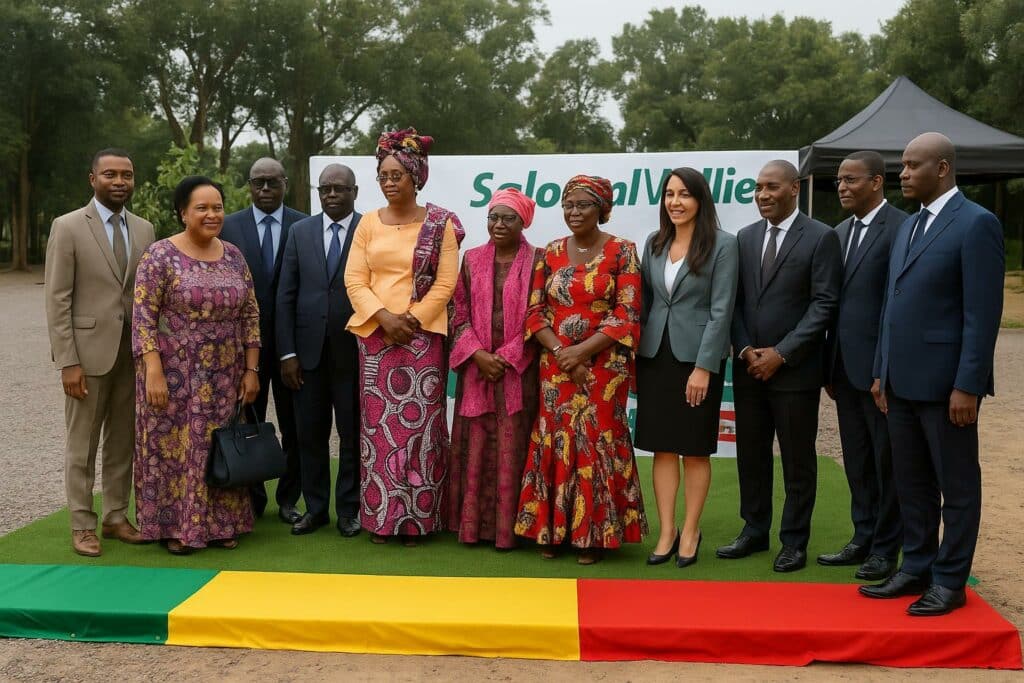Strategic Timing for Economic Diversification
In the marble-lined hall of the Ministry for Small and Medium-Sized Enterprises and Handicrafts, Minister Jacqueline Lydia Mikolo formally opened a process that many economists had anticipated: the drafting of Congo-Brazzaville’s first comprehensive national policy for small and medium-sized enterprises and artisans. The move comes as the government pursues its 2022-2026 National Development Plan, in which economic diversification is described as a “sovereign imperative” after years of dependence on hydrocarbons. According to the African Development Bank, oil still accounts for roughly 45 percent of gross domestic product and 80 percent of exports, leaving the economy vulnerable to price volatility (African Development Bank, 2023). By cultivating competitive domestic firms, Brazzaville seeks to insulate growth from external shocks while accelerating job creation for a youthful population.
An Inclusive Consultative Framework
The policy process unveiled by Minister Mikolo is deliberately participatory. Government agencies, provincial authorities, chambers of commerce, women’s cooperatives and digital start-ups have been invited to contribute position papers during a six-month consultation phase. The United Nations Development Programme, represented in Brazzaville by Adama Cissé, pledged technical support for data gathering and policy benchmarking. “Our shared ambition is to build an ecosystem where creativity converts into competitive advantage,” Cissé underscored during the launch ceremony (UNDP Congo, 2023). Such an approach mirrors international good practice: OECD studies show that SME policies enjoy greater traction when formulated with the direct involvement of entrepreneurs.
Financing and Market Access under the Spotlight
Limited access to credit has long been cited as the Achilles’ heel of Congolese enterprises. Central-bank surveys indicate that fewer than 15 percent of SMEs obtain medium-term loans, often due to collateral requirements. The forthcoming strategy intends to address this gap through a blended-finance window that couples state guarantees with commercial-bank lending. Discussions with regional lenders, including the Development Bank of Central African States, are reportedly advanced. The policy team is also exploring fiscal incentives for venture-capital funds to channel resources toward technology-oriented firms. In parallel, the Ministry of Trade is preparing a digital procurement platform to ease SME entry into public tenders, a reform inspired by Kenya’s successful e-procurement system. By broadening both financing and markets, policymakers hope to unlock what the World Bank calls “the missing middle” of enterprise growth (World Bank, 2022).
Formalising and Empowering the Artisanal Sector
Artisans represent an estimated 22 percent of the active labour force, yet most operate outside the formal economy. The policy blueprint envisages a graduated tax regime, simplified registration procedures and the establishment of a ‘Village de l’Artisanat’ in Brazzaville, co-financed by the state and the UNDP. The complex will feature shared production equipment, quality-control laboratories and a showroom for export buyers. Minister Mikolo emphasised that the initiative “places cultural heritage at the heart of industrial policy”, aligning with UNESCO recommendations on the creative economy (UNESCO, 2021). Formalisation is expected to boost social protection coverage while improving traceability in regional value chains, a prerequisite for leveraging the African Continental Free Trade Area.
Regional Integration and International Support
Congo’s blueprint is being crafted against the backdrop of intensifying regional competition. Neighbouring Cameroon and Gabon have already enacted SME charters that grant firms preferential customs treatment. Brazzaville’s negotiators thus aim to ensure that Congolese products, from cassava flour to tailored garments, meet the standards required to circulate freely once the AfCFTA’s rules of origin are fully operational. The Economic Commission for Africa estimates that intra-African trade could rise by 33 percent if non-tariff barriers are reduced (ECA, 2022). International partners, including the European Union’s Delegation in Congo and the French Development Agency, have expressed interest in complementary projects focusing on skills upgrading and digital innovation hubs. Such synergy, diplomats note, reinforces Congo’s image as a constructive actor in multilateral economic cooperation.
Governance, Metrics and the Road Ahead
Transparency mechanisms feature prominently in the emerging policy draft. A steering committee chaired by the Prime Minister’s Office will publish quarterly dashboards on key performance indicators, ranging from the number of newly formalised enterprises to the volume of SME exports. Civil-society observers welcomed the commitment to data disclosure, noting that previous industrial programmes faltered due to insufficient monitoring. The government’s target is to double the contribution of non-oil SMEs to GDP by 2030, a benchmark considered ambitious yet attainable by analysts at the Economic Commission of Central African States (ECCAS, 2023).
The final document is expected to be presented to Parliament by the end of the year, after which enabling legislation and budgetary allocations will follow. If successfully implemented, the policy could mark a watershed moment, embedding entrepreneurship at the centre of Congo-Brazzaville’s post-oil narrative while signalling to investors that reform momentum is gaining strength. As one seasoned diplomat put it after the launch event, “The question is no longer whether Congo can diversify, but how fast its SMEs can scale.”

